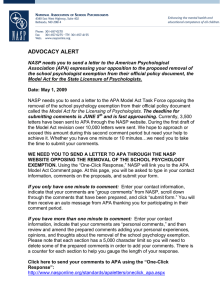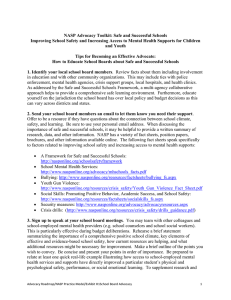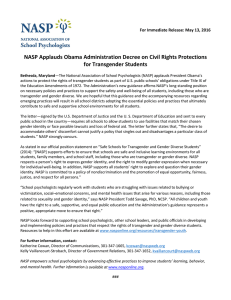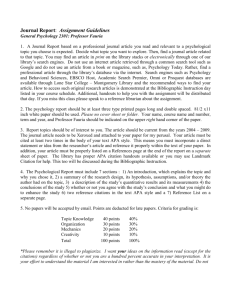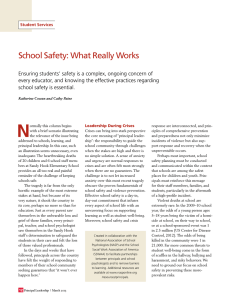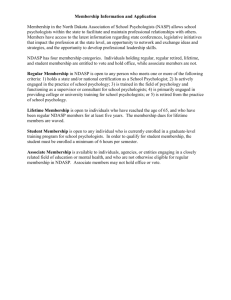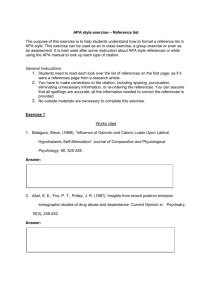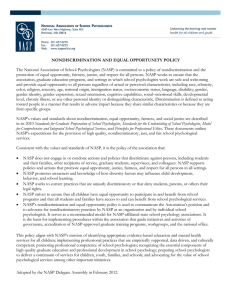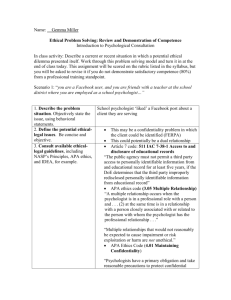Summary of Critical Resources and Issues for States
advertisement
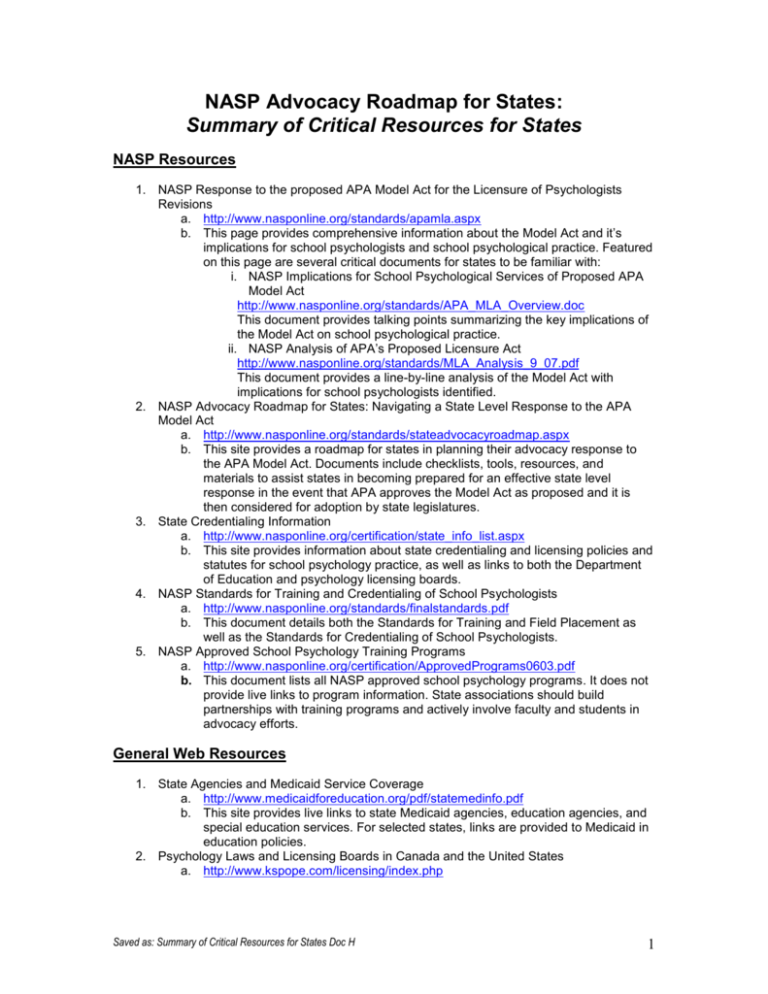
NASP Advocacy Roadmap for States: Summary of Critical Resources for States NASP Resources 1. NASP Response to the proposed APA Model Act for the Licensure of Psychologists Revisions a. http://www.nasponline.org/standards/apamla.aspx b. This page provides comprehensive information about the Model Act and it’s implications for school psychologists and school psychological practice. Featured on this page are several critical documents for states to be familiar with: i. NASP Implications for School Psychological Services of Proposed APA Model Act http://www.nasponline.org/standards/APA_MLA_Overview.doc This document provides talking points summarizing the key implications of the Model Act on school psychological practice. ii. NASP Analysis of APA’s Proposed Licensure Act http://www.nasponline.org/standards/MLA_Analysis_9_07.pdf This document provides a line-by-line analysis of the Model Act with implications for school psychologists identified. 2. NASP Advocacy Roadmap for States: Navigating a State Level Response to the APA Model Act a. http://www.nasponline.org/standards/stateadvocacyroadmap.aspx b. This site provides a roadmap for states in planning their advocacy response to the APA Model Act. Documents include checklists, tools, resources, and materials to assist states in becoming prepared for an effective state level response in the event that APA approves the Model Act as proposed and it is then considered for adoption by state legislatures. 3. State Credentialing Information a. http://www.nasponline.org/certification/state_info_list.aspx b. This site provides information about state credentialing and licensing policies and statutes for school psychology practice, as well as links to both the Department of Education and psychology licensing boards. 4. NASP Standards for Training and Credentialing of School Psychologists a. http://www.nasponline.org/standards/finalstandards.pdf b. This document details both the Standards for Training and Field Placement as well as the Standards for Credentialing of School Psychologists. 5. NASP Approved School Psychology Training Programs a. http://www.nasponline.org/certification/ApprovedPrograms0603.pdf b. This document lists all NASP approved school psychology programs. It does not provide live links to program information. State associations should build partnerships with training programs and actively involve faculty and students in advocacy efforts. General Web Resources 1. State Agencies and Medicaid Service Coverage a. http://www.medicaidforeducation.org/pdf/statemedinfo.pdf b. This site provides live links to state Medicaid agencies, education agencies, and special education services. For selected states, links are provided to Medicaid in education policies. 2. Psychology Laws and Licensing Boards in Canada and the United States a. http://www.kspope.com/licensing/index.php Saved as: Summary of Critical Resources for States Doc H 1 b. This site provides a link to every state licensing board in the US and Canada. Users can access the specific statutes and codes governing the practice of psychology. 3. American Psychological Association Model Act for the State Licensure of Psychologists (Model Act) a. http://forms.apa.org/practice/modelactlicensure/ModelActforReview.pdf b. This site provides the text of the proposed Model Act. This Model Act is a policy document that may be used as a prototype for state legislatures for drafting legislation regarding the state’s titling and practice of psychology. Allied Professional Groups Building an effective advocacy response requires that school psychologists elicit support from colleagues who also share in the mission of providing high quality education and mental health services within schools, and are influential in public policy development. At the national level, NASP has positive working relationships with key professional organizations committed to this mission, and NASP will elicit support from these allied professionals to defeat APA’s effort to retitle school psychology. For most of these organizations, state level affiliate organizations may also be available. Some of the key organizations to contact and discuss the implications of the Model Act with include (in alphabetical order): **AASA: American Association of School Administrators **ACA: American Counseling Association AFT: American Federation of Teachers **ASCA: American School Counselor Association **CASE: Council of Administrators of Special Education (Division of CEC) **CCDB: Council for Children with Behavior Disorders (Division of CEC) Council for Exceptional Children NAPSO: National Alliance of Pupil Services Organizations **NAESP: National Association of Elementary School Principals **NASSP: National Association of Secondary School Principals NASDSE: National Association of State Directors of Special Education NEA: National Education Association **NSBA: National School Boards Association **SSWAA: School Social Work Association of America www.aasa.org www.counseling.org www.aft.org www.schoolcouselor.org www.casecec.org www.ccbd.net www.cec.sped.org www.napso.org www.naesp.org www.nassp.org www.nasdse.org www.nea.org www.nsba.org www.sswaa.org **Denotes organizations that notified NASP that they sent a letter to APA opposing the removal of the school psychologist exemption from the proposed Model Act. Saved as: Summary of Critical Resources for States Doc H 2
